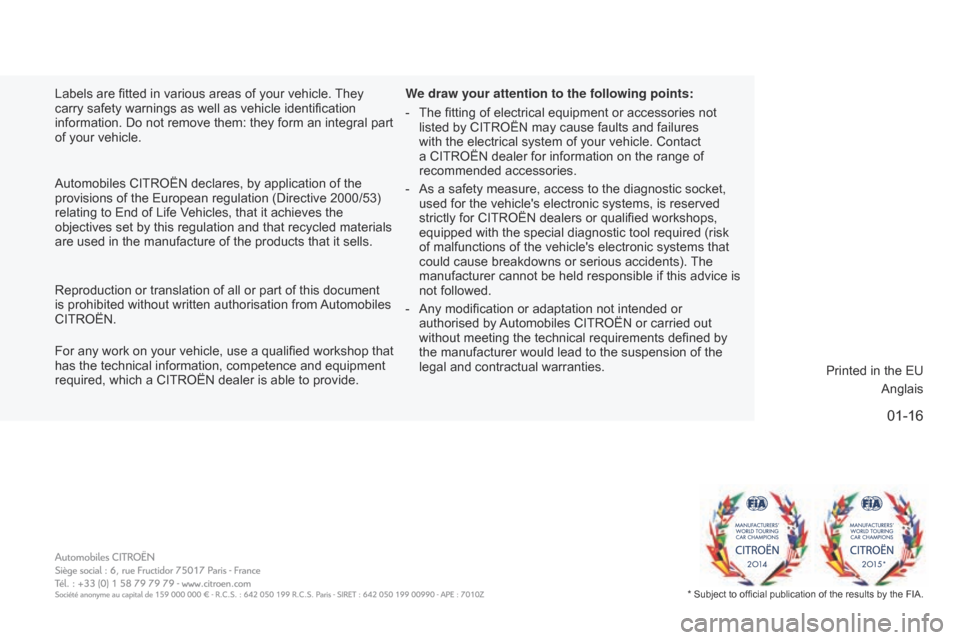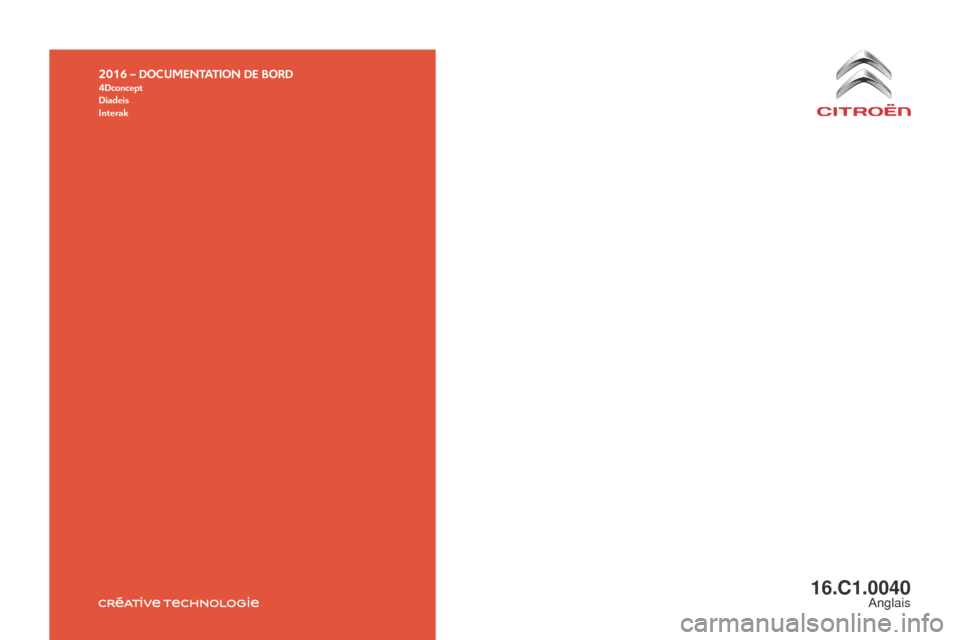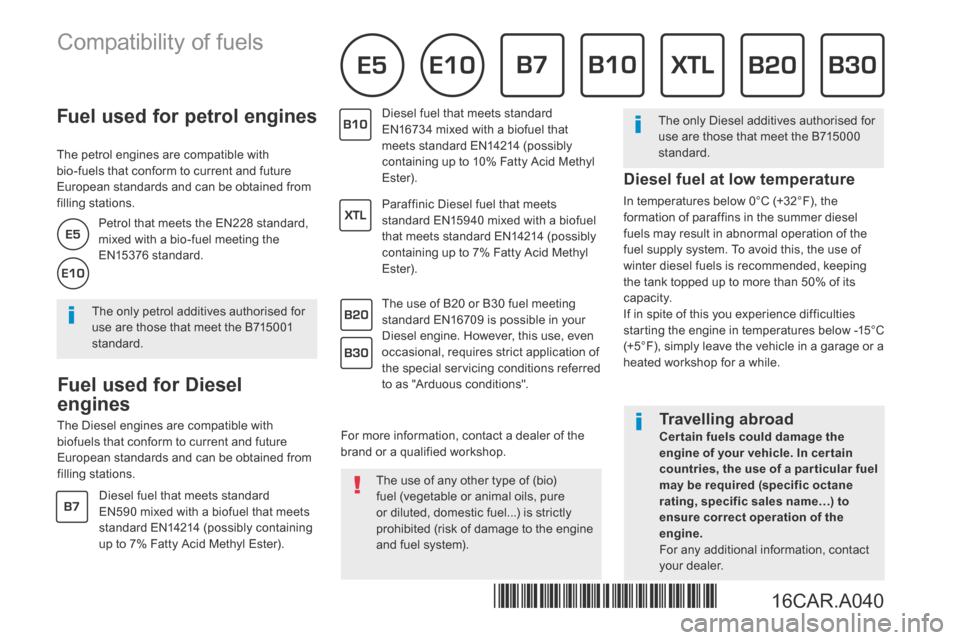01-16
C1_en_Chap12_couv-fin_ed01-2016
Labels are fitted in various areas of your vehicle. They carry
safety warnings as well as vehicle identification
information.
Do
not
remove
them:
they
form
an
integral
part
of
your vehicle.
Automobiles
CITROËN declares, by application of the
provisions
of the European regulation (Directive 2000/53)
relating
to End of Life Vehicles, that it achieves the
objectives
set by this regulation and that recycled materials
are
used in the manufacture of the products that it sells.
Reproduction
or translation of all or part of this document
is
prohibited without written authorisation from
Automobiles
CITROËN. W
e draw your attention to the following points:
-
The
fitting of electrical equipment or accessories not
listed
by CITROËN may cause faults and failures
with
the electrical system of your vehicle. Contact
a
CITROËN dealer for information on the range of
recommended
accessories.
-
As
a safety measure, access to the diagnostic socket,
used
for the vehicle's electronic systems, is reserved
strictly
for CITROËN dealers or qualified workshops,
equipped
with the special diagnostic tool required (risk
of
malfunctions of the vehicle's electronic systems that
could
cause breakdowns or serious accidents).
The
manufacturer
cannot be held responsible if this advice is
not
followed.
-
Any
modification or adaptation not intended or
authorised
by
Automobiles
CITROËN or carried out
without
meeting the technical requirements defined by
the
manufacturer would lead to the suspension of the
legal
and contractual warranties.Printed
in the EU
Anglais
For
any
work
on
your
vehicle,
use
a
qualified
workshop
that
has
the technical information, competence and equipment
required,
which a CITROËN dealer is able to provide.
* Subject to official publication of the results by the FIA.
Fuel used for petrol engines
The petrol engines are compatible with bio-fuels that conform to current and future European standards and can be obtained from filling stations.
Fuel used for Diesel
engines
The Diesel engines are compatible with biofuels that conform to current and future European standards and can be obtained from filling stations.
The use of B20 or B30 fuel meeting standard EN16709 is possible in your Diesel engine. However, this use, even occasional, requires strict application of the special servicing conditions referred to as "Arduous conditions".
The use of any other type of (bio)fuel (vegetable or animal oils, pure or diluted, domestic fuel...) is strictly prohibited (risk of damage to the engine and fuel system).
The only Diesel additives authorised for use are those that meet the B715000 standard.
The only petrol additives authorised for use are those that meet the B715001 standard.
Petrol that meets the EN228 standard, mixed with a bio-fuel meeting the EN15376 standard.
Travelling abroad Cer tain fuels could damage the engine of your vehicle. In cer tain countries, the use of a par ticular fuel may be required (specific octane rating, specific sales name…) to ensure correct operation of the
engine. For any additional information, contact your dealer.
Diesel fuel that meets standard EN590 mixed with a biofuel that meets standard EN14214 (possibly containing up to 7% Fatty Acid Methyl Ester).
Diesel fuel that meets standard EN16734 mixed with a biofuel that meets standard EN14214 (possibly containing up to 10% Fatty Acid Methyl Ester).
Paraffinic Diesel fuel that meets standard EN15940 mixed with a biofuel that meets standard EN14214 (possibly containing up to 7% Fatty Acid Methyl Ester).
For more information, contact a dealer of the brand or a qualified workshop.
Compatibility of fuels
Diesel fuel at low temperature
In temperatures below 0°C (+32°F), the formation of paraffins in the summer diesel fuels may result in abnormal operation of the fuel supply system. To avoid this, the use of winter diesel fuels is recommended, keeping
the tank topped up to more than 50% of its capacity. If in spite of this you experience difficulties starting the engine in temperatures below -15°C (+5°F), simply leave the vehicle in a garage or a heated workshop for a while.
16CAR.A040*16CAR.A040*

















